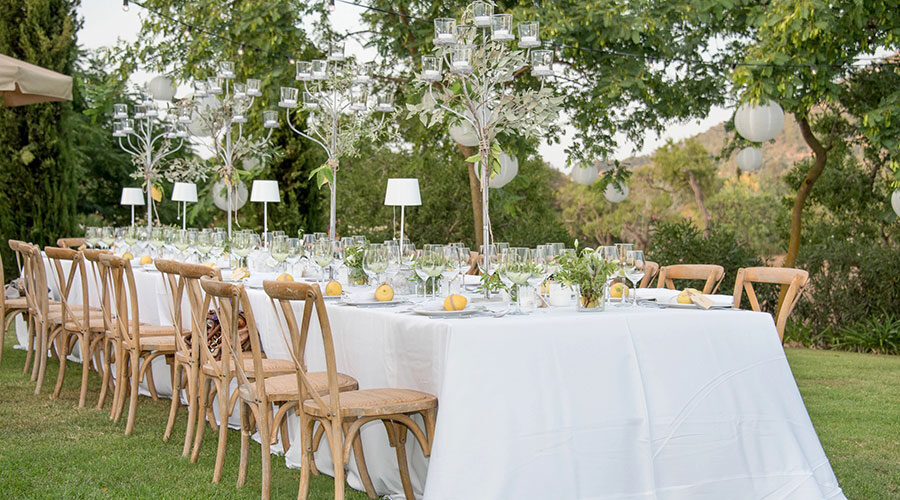How To Open A Successful Event Venue
Opening an event venue involves much more than acquiring a space and renting it out. The process requires careful planning, an eye for detail, and a commitment to delivering a positive experience for event organizers and attendees. A well-run venue becomes a sought-after location that hosts diverse events, from weddings and conferences to farmers’ markets and festivals.
We’ll break down key steps to opening and operating a successful event venue, focusing on practical strategies that build reputation, attract upcoming events, and sustain growth.
Selecting an Ideal Location and Physical Space
Location lays the foundation for a venue’s success. A convenient site draws vendors and guests alike. Proximity to public transportation, highways, and ample parking are factors event planners consider carefully. Venues near restaurants, hotels, or entertainment districts add appeal and convenience for attendees.
The space itself must suit the kinds of events you intend to host. Flexible layouts that can adapt from seated dinners to open floor plans accommodate a range of events. High ceilings and natural light create an inviting atmosphere. Outdoor areas such as gardens or courtyards add versatility, especially for weddings or festivals.
Investigate local zoning laws, noise ordinances, and permit requirements before committing to a location. Compliance with regulations prevents disruptions and ensures smooth operations.
Designing Functional, Comfortable, and Appealing Facilities
The design of your venue shapes how attendees experience events. Practical flow is important. Consider how guests enter and exit, move between spaces, and access amenities like restrooms and food areas. Avoid bottlenecks and confusing layouts.
Durable flooring, walls, and furnishings reduce maintenance costs over time. Choose colors and decor that reflect your venue’s brand while remaining neutral enough to suit different event styles.
Technical infrastructure deserves close attention. Installing quality sound systems, stage lighting, and projection capabilities expands your venue’s appeal. Adjustable lighting options create mood and highlight key event moments.
Comfort features such as climate control, acoustics that minimize echo, and comfortable seating improve guest satisfaction. Clean, accessible restrooms and well-marked signage round out a positive experience.
Staffing With Skilled and Attentive Professionals
Your staff is the backbone of daily operations. Hire managers and coordinators with experience in event planning and hospitality. Their expertise helps anticipate challenges and solve problems quickly.
Train front-of-house and support staff in customer service and emergency procedures. Staff who communicate clearly and respond promptly to requests build goodwill with vendors and guests.
Clear role definitions and strong leadership maintain organization during busy events. Cross-training employees increases flexibility and helps cover unexpected absences. Encouraging a positive work culture motivates staff to deliver consistent service that enhances the venue’s reputation.
Crafting Transparent and Competitive Pricing Models
Developing pricing structures that attract clients and cover expenses requires research and balance. Analyze local competitors’ rates and the market’s capacity to pay.
Consider tiered pricing based on event size, duration, and additional services like audiovisual equipment or cleaning. Offering packages simplifies decision-making for organizers and encourages longer bookings.
Deposit requirements and cancellation policies should be clear and fair. Transparent terms reduce misunderstandings and build trust with clients.
Using an online vendor booking system streamlines the reservation process. Vendors appreciate easy access to availability and contracts.
Marketing Strategies to Draw Upcoming Events
Successful venues create strong awareness through targeted marketing. A professionally designed website with detailed descriptions, photos, and virtual tours captures initial interest.
Social media channels offer opportunities to showcase recent events and client testimonials. Consistent posting and engagement build a loyal audience.
Develop partnerships with event planners, caterers, and local businesses who can recommend your venue. Attend trade shows and networking events to increase visibility.
Organizing open house tours or demonstration events invites potential clients to experience the space firsthand. List your venue on event directories to expand your reach and attract varied event types.
Offering Technology and Amenities That Meet Modern Expectations
Technology plays a growing role in event venues. Fast, reliable internet access is a must for business meetings and social media sharing. Audio-visual systems equipped with wireless microphones and projectors support presentations and entertainment.
Providing ample power outlets in convenient locations allows vendors and organizers to set up easily. Charging stations for guests add convenience.
Back-of-house amenities such as storage rooms, dressing areas, and loading docks facilitate setup and breakdown. Easy access for vendors and performers improves event logistics.
Safety features including emergency exits, security systems, and accessible entrances protect all visitors and comply with laws.
Cultivating Vendor and Sponsor Partnerships
Reliable vendors enhance your venue’s service offerings. Developing preferred vendor lists for catering, entertainment, and equipment rental simplifies event planning for clients.
Hosting vendor networking events strengthens these relationships and opens opportunities for collaboration. Securing sponsorships from local businesses or brands provides additional funding and marketing support.
Event sponsors gain exposure through event signage, promotions, or exclusive access. These partnerships contribute to a richer event environment and expand your venue’s resources.
Managing Daily Operations with Efficiency
Smooth operations require well-defined processes. Maintain regular cleaning and maintenance schedules to keep the venue in top condition.
Use venue management software to track bookings, payments, and client communications. Accurate record-keeping aids financial oversight and forecasting.
Coordinate with event organizers on timelines, setup requirements, and staffing needs. Clear communication prevents confusion on event days. Handling unexpected issues calmly and professionally keeps events on track and preserves your venue’s reputation.
Gathering Feedback and Adapting Over Time
Collecting input from clients, guests, and staff reveals opportunities for improvement. Surveys, reviews, and direct conversations provide valuable insights.
Addressing concerns promptly demonstrates commitment to quality. Use feedback to refine services, adjust policies, or upgrade facilities. Staying open to change allows your venue to adapt to evolving market demands and attendee expectations.
Launch Your Venue with Unite Worldwide
Opening a successful event venue requires a thoughtful approach to location, design, staffing, and marketing. At Unite Worldwide Inc., we help venue owners connect with event organizers and vendors to bring life to spaces. Our platform simplifies venue management and promotes your location to a wide network of event planners seeking ideal venues for events.
We partner with parks, communities, and sporting venues to create vibrant marketplaces and event spaces that attract diverse gatherings. With over 60 successful events hosted in the past two years, our expertise guides venue owners through vendor recruitment, event scheduling, and seamless operations. Our technology streamlines communication and booking processes, helping you focus on providing great experiences.
Let Unite Worldwide be your partner in launching and growing a successful event venue. Reach out today to learn how we can connect you with upcoming events and quality vendors to make your venue thrive.



